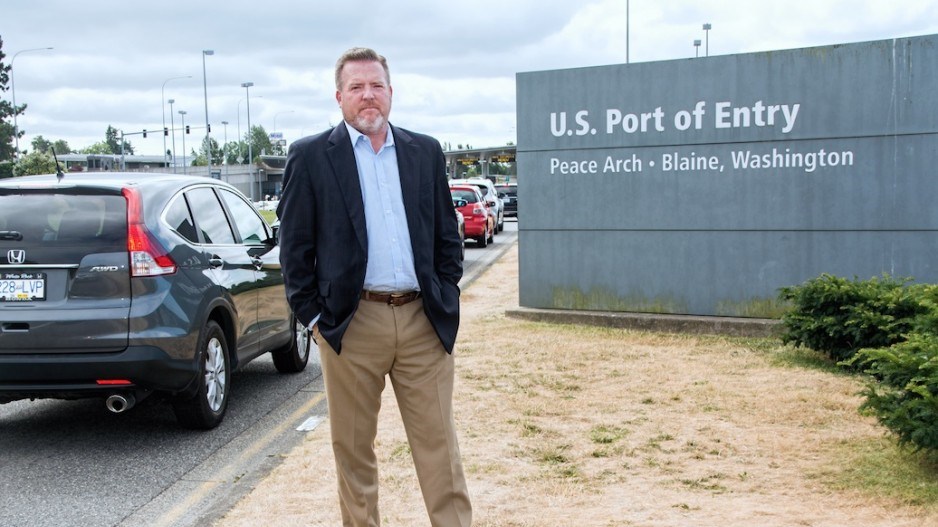Travellers on flights within Canada will be able to bring up to 30 grams of cannabis with them in checked or carry-on bags, but if the plane is forced to make an emergency landing south of the border they could be banned for life from visiting the U.S., or even charged criminally in that country.
Canadian Transportation Minister Marc Garneau stressed during an October 2 media scrum that travellers are allowed to carry cannabis only on domestic flights.
Flights between Vancouver and Toronto, however, almost always fly over the U.S. for a significant part of the trip. Were a plane on that route to suffer equipment problems or encounter weather severe enough to force a landing south of the border, Canadians who possess cannabis could be banned for life from entering the U.S., or even face U.S. criminal charges, said Blaine Immigration lawyer Len Saunders.
“Once again, the Canadian government has not fully thought out the possible U.S. border implications for Canadians in legalizing marijuana,” he said.
Saunders told Business in Vancouver in July that if a U.S. border guard were to ask a Canadian if he or she has ever smoked cannabis, and the answer is yes, the wisest response would be to stay silent. The worst that could then happen would be to be turned back for the day. Answering yes would carry the likelihood that the Canadian would be banned for life from visiting the U.S., he said.
Air Canada spokeswoman Angela Mah told BIV that it is “rare” for domestic flights on her airline to land in the U.S., but she added that those landings do happen.
The repercussions for a Canadian traveller who carries cannabis on a domestic flight and is forced to land in the U.S. depend on a number of factors, including whether the state where the plane landed has legalized recreational cannabis, the age of the passenger and whether the passenger is able to dispose of the cannabis before exiting the plane and avoid drug-sniffing dogs.
Were the plane to land in Washington state, where recreational cannabis is legal, and the person is 21 or older, the harshest likely penalty would be a federally issued lifetime ban from entering the U.S., Saunders said.
If the person is 19 or 20 years old, however, he or she could face state-levied criminal charges in addition to a federal lifetime ban because Washington state has set the minimum age for cannabis consumption at 21 years old, Saunders added.
Things would be equally dire for any cannabis-carrying adult domestic flyers forced to land in Minnesota or Illinois, where recreational cannabis is not legal. Those state governments could lay drug possession charges in addition to the federal government banning the person from ever again entering the U.S., Saunders said.
“Unless the plane lands in Fargo, North Dakota, where there is probably no Customs and Border Protection inspection, I would say that it is risky for people to take their marijuana on a plane between Vancouver and Toronto, given what could happen,” he said.
Bellingham lawyer Jonathan Rands said federal charges for drug possession could also be laid against someone who lands in the U.S. with cannabis if the person is carrying a considerable amount.
“You would have to have a fairly decent amount so that it looks like you are a contributor or a trafficker,” he said.
— Glen Korstrom, Business in Vancouver



